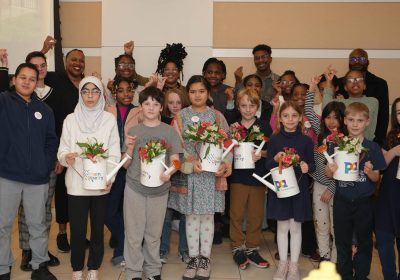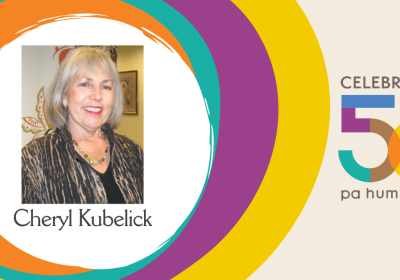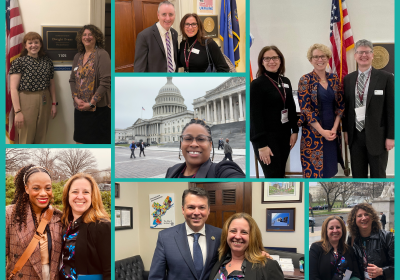Earlier this year fifteen libraries across the state launched a special Teen Reading Lounge pilot. The goal was to provide ways for teens to meaningfully contribute to their communities and participate in civically focused activities, with a special emphasis on reaching youth from diverse backgrounds, including low-income youth. Throughout the eight-week pilot, librarians and program facilitators worked tirelessly to intentionally reach and engage youth who may not normally have the opportunity to participate in this type of programming.
The result? Preliminary data from our program evaluators suggest that teens who participated in this round of Teen Reading Lounge have become more interested in volunteerism and leadership opportunities in their libraries and communities.

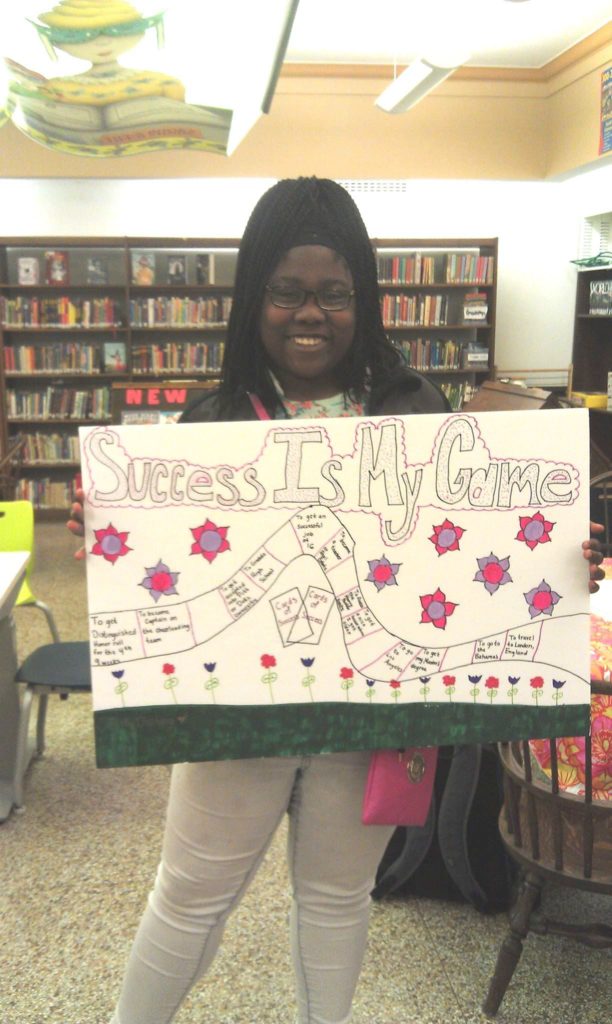
What impact did Teen Reading Lounge have?
Through this Teen Reading Lounge pilot, we’ve learned that the humanities help to build community among young people. Teen Reading Lounge provides participants with the opportunity to discuss topics and issues that are relevant to them; by having these conversations, teens are better able to build relationships with one another, and this connectedness builds a sense of community.
For example, Leslie Stillings, director of youth services at Pottstown Memorial Library, structured her library’s Teen Reading Lounge so that the upper middle school and high school students acted as mentors to younger youth. The older teens facilitated the discussion, which helped younger teens to feel more comfortable and created a strong sense of community. Teens who hadn’t known each other before began to mesh and form friendships; as these friendships developed the teens became more confident and began opening up more during discussions. Empowering the older teens to organize and make decisions about the program also aided in the development of leadership skills.
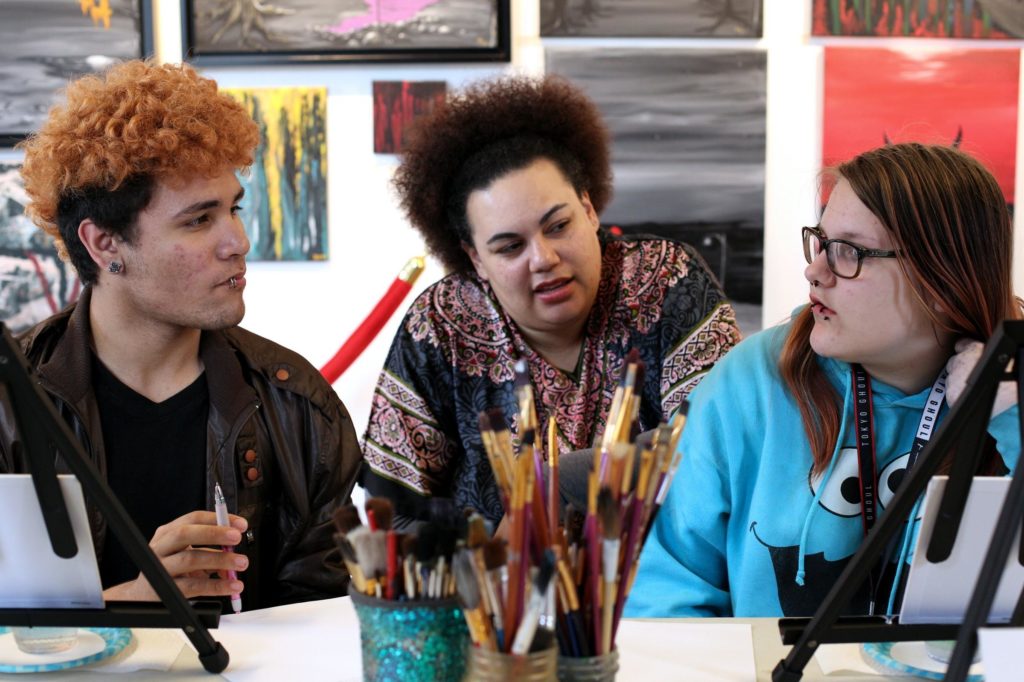
The program also helped teens to build confidence in themselves and in their reading abilities. “Many of the participants have low self-confidence, but now they have a place to come and feel welcome,” said Stillings. “Teen Reading Lounge has definitely helped to build their confidence by finding a comfortable space within the library.”
At Priestley Forsyth Memorial Library in Northumberland, Kim King, the youth services coordinator, was surprised at how all the kids had taken a liking to reading –not just the strong readers, but also the kids who had been less interested in reading at the beginning of the program. “The older, stronger readers have been motivating the others, and kids who had challenges with reading have stuck with it and stepped up their game,” said King.
Successes and Challenges
Aside from learning that the humanities can help build community among teens, librarians and facilitators also observed that low-income youth may face many more challenges than their peers. “A lot of stereotypes about these students [from low-income backgrounds] being just uneducated wasn’t true,” said Carla Christopher, program facilitator at Martin Memorial Library in York. “Our students were holding down jobs, providing childcare for siblings and running households in support of their working parents. Their intelligence just wasn’t able to be traditionally measured.”
Many program facilitators also learned that the best way to grow their program was by word of mouth. “Those who signed up definitely bragged about Teen Reading Lounge to their friends,” said Christina Patton, librarian at the Greater Olney Branch of the Free Library of Philadelphia. Lansdowne Public Library and B.F. Jones Memorial Library in Aliquippa had similar experiences of increasing participants when teens enjoyed the program. Baden Memorial Library drew a population from four different school districts –all by word of mouth.
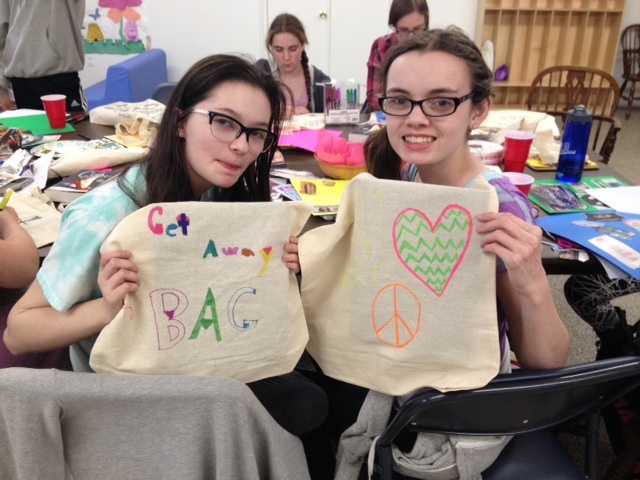
TEENS AT BADEN & LAUGHLIN MEMORIAL LIBRARIES TEEN READING LOUNGE
So what’s the secret? How did librarians and program facilitators make their programs so intriguing that youth wanted to tell their friends? “The teens seemed to be more engaged when the books we read were culturally reflective and they found that they could relate to the situations or characters,” said Marcela Franco, manager at the Kensington Branch of the Free Library of Philadelphia. Other librarians noticed that once they created a special space for the teens, it made them more comfortable and more likely to hang out at the library. “More teens seem to gravitate now that I am creating a dedicated space,” said Julie Mulcahy, library director at Laughlin Memorial Library in Ambridge. “It creates a safe space to gather and a sense of community among the youth.”
Although these programs were successful, it wasn’t an easy task. A few program facilitators mentioned challenges in engaging participants. “It was important for us not to focus on the book for too long –once we moved into discussions it became easier for me to break barriers down by making connections with the teens,” said Keville Bowen, program facilitator at Lansdowne Public Library. Bowen also mentioned that discussing topics that everyone had some familiarity with made for easier and more impactful discussions.
Sites participating in this Teen Reading Lounge pilot program were most successful when librarians and program facilitators took time to think about the program design and link it back to concrete skills. Dawn States, teen services coordinator at Martin Memorial Library, noticed that at first some teens were unable to articulate their skills and determine what they were good at. But by discussing themes of overcoming obstacles to success, they were able to name their skills and include them in visions for their future lives.
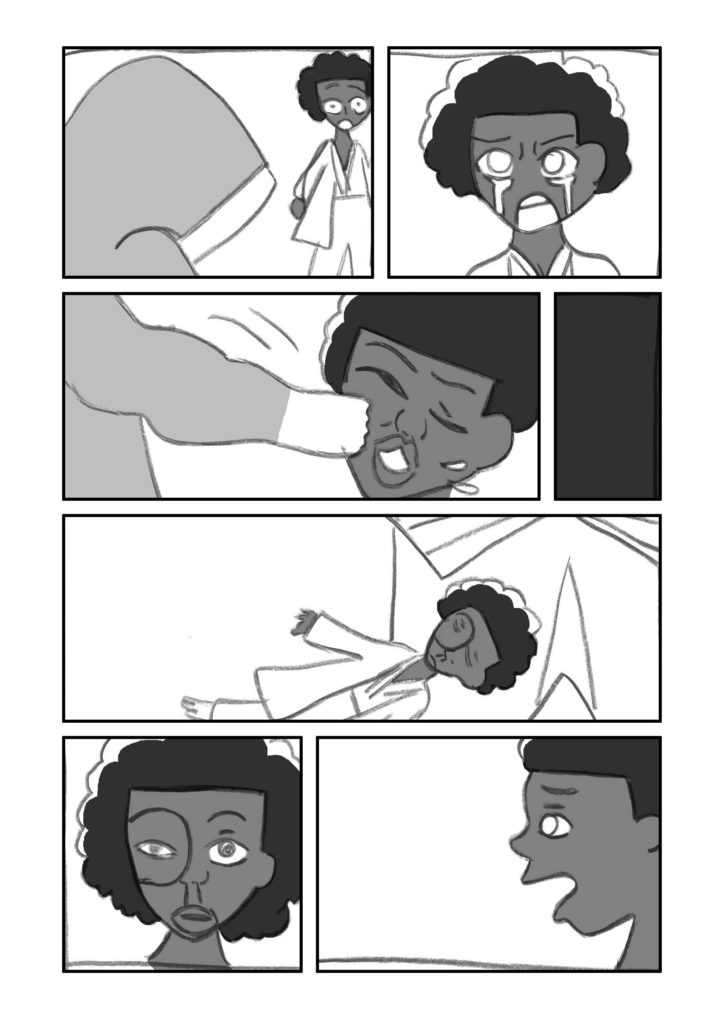
Librarians and facilitators also learned that creating a more intentional connection between books and activities really brought the humanities into focus for the youth. At Lansdowne Public Library teens read Japanese comics that featured black characters; to complement their readings, facilitator Bowen worked with teens to help them draw and create their own comics based on their personal experiences.
The Pennsylvania Humanities Council and participating libraries will continue to explore how Teen Reading Lounge can help youth from all backgrounds build essential life skills through the humanities. Final data on this first Teen Reading Lounge pilot will be available soon. And a second round of the pilot will launch this fall.
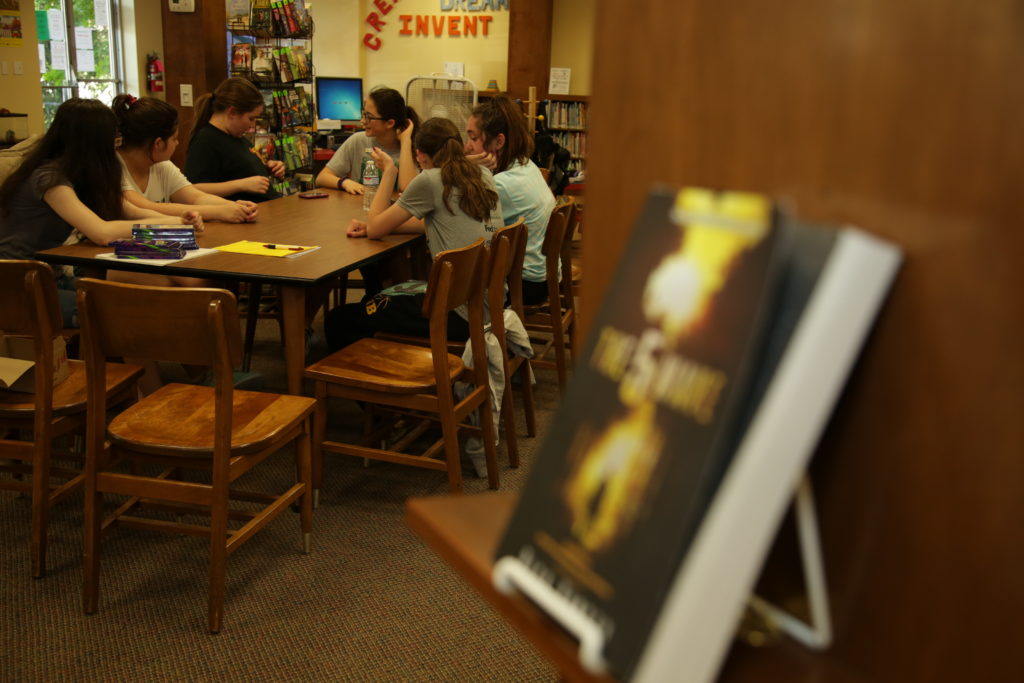
![[color – dark bg] PA SHARP FINAL FILES DB 72dpi [color - dark bg] PA SHARP FINAL FILES DB 72dpi](https://pahumanities.org/uploads/files/elementor/thumbs/color-dark-bg-PA-SHARP-FINAL-FILES-DB-72dpi-phgl7aimtfdpzt2rscvl43ksfv3asbbls19lsvuacw.jpg)
